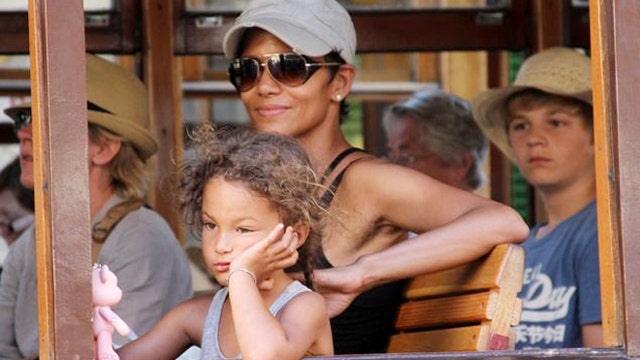Anti-Paparazzi Law: Should kids be left out of the picture?
Anti-paparazzi law passed to protect children of fame has made little impact
Divorce is not easy for any child, but when celebrity couples like Kardashian-Disick and Garner-Affleck call it quits, their kids face increased interest by paparazzi.
California has tried to deal with the issue, implementing an anti-paparazzi law last year, but so far no one has been prosecuted. Garner was one of the actors speaking out in support of the bill, saying celebrities chose this public life, but their children did not. Garner appeared at the California Legislature in 2013. “Literally everyday there are as many as 15 cars of photographers waiting outside our home," she testified. "In the course of our ordinary day — trips to school, pediatrician, ballet, or the grocery store — paparazzi swarm. Large aggressive men swarm us causing a mob scene, yelling, jockeying for a position, crowding around the kids.”
The law, which went into effect on Jan. 1, 2014, made it illegal to photograph a child of a high profile figure in a manner that “seriously alarms, annoys, torments or terrorizes” children, but even though it increases fines to up to $10,000 could result in jail time, the legislation has yet to have a drastic effect on the media industry. While People and Entertainment Tonight have agreed not to run pictures of children who are born into fame, other entertainment outlets continue to print pictures of famous children.
Paparazzi photographer Giles Harrison says he has seen a little bit of a decrease of interest in celebrity offspring. “The money that was in it that fueled all the paparazzi trying to get those pictures a few years back, I think it’s kind of gone out of it a little bit,” he told FOX411, but added: “If there’s a big enough story people are going to run the photos regardless of what the law says.” And he points out, some famous people are looking for the attention, even if it means getting it from their kids. “As long as you have celebrities like the Kardashians that continuously go out in public and parade their children in front of the spotlight,” said Harrison. “It is not a part of the industry that’s going away.”
The law has drawn criticism from some journalists. Joe Berry of the California Broadcasters Association is concerned it could hinder journalists from doing their job. "The vague language of the bill does not only apply to the paparazzi it could easily apply to legitimate news gatherings," he said. "It could even apply to a member of the public.”
But California-based attorney Donald Schweitzer does not think the law violates the First Amendment. “The law uses certain language that has already been tested over and over again by the courts of appeal, such as harassment," he said. "There’s not a First Amendment right to harass people.”
Still, Schweitzer does understand why reporters are not happy with the legislation.
“I do think it could have a chilling effect to the fact that the law states that it has to be for no legitimate purpose, and as we know the First Amendment protects reporters for a variety of things including taking pictures and posting images," he said. "So it chills it to the extent that a celebrity could possibly go around town with a child in tow and use that as a shield to getting images taken.”
While there may be a small trend against photographing the little ones, Harrison says celebrity children are within the public’s interest.
“It’s weird but I think people like to see a celebrity in a more human light and when they’re with their children they tend to be in a human light to some extent,” he said. “There is a lot sections that are 'celebs are just like us!' So people want to see you know they go to the beach just like us or they shop at Walmart just like us.”







